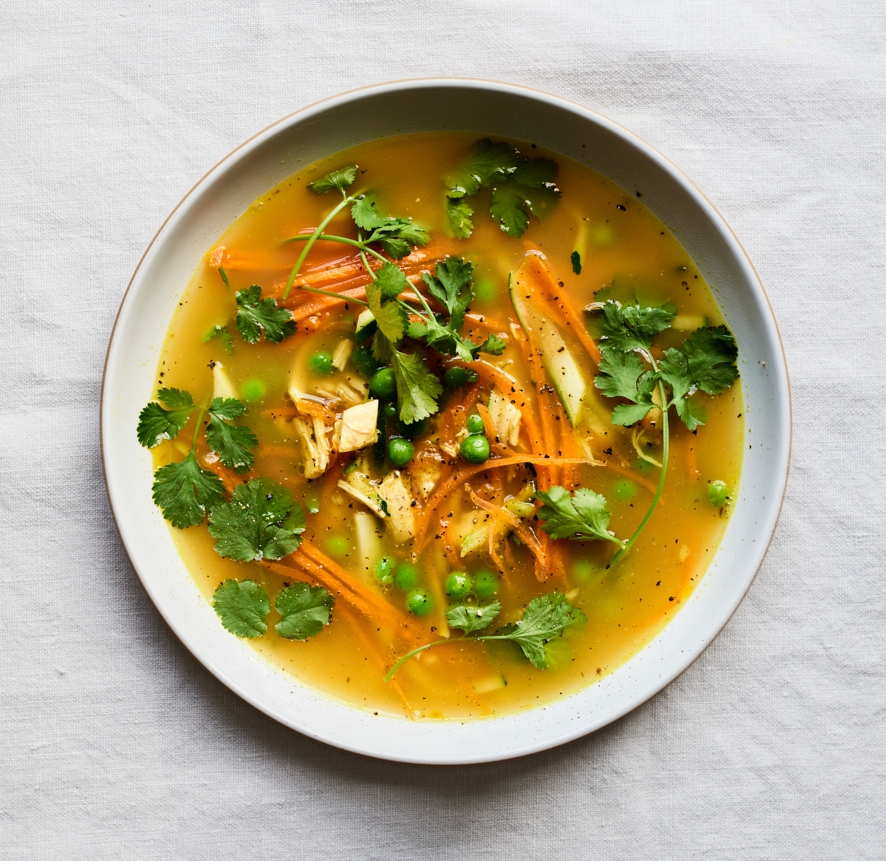22 Apr, 2019
INGREDIENT SPOTLIGHT: ASPARAGUS
Our nutritionist Rob Hobson takes a deep dive into one of our favourite springtime ingredients: asparagus. British asparagus is thick stemmed, superiorly flavoursome and something well worth waiting for. Rob looks at the nutritional benefits of asparagus, as well as some of our favourite asparagus recipes.
FoodHealth spotlight – British asparagus
Asparagus is officially known as Asparagus Officinalis and is member of the lily family. Whilst you’re probably most familiar with the green variety, asparagus also comes in white and purple.
The season for British asparagus is short and traditionally runs from St. Georges day (23rd April) through to Summer Solstice on the 21st June. Unlike the flimsy and often flavourless Peruvian imports that are available all year round in the supermarkets, British asparagus is thick stemmed, superiorly flavoursome and something well worth waiting for. Asparagus spears are known to decline in quality at a faster rate than other vegetables but during the British season produce hits the supermarkets shelves shortly after picking which maximises their flavour.
What are the health benefits of asparagus?
Despite containing just 20 calories per 100g, asparagus still packs a punch nutritionally.
Vitamins and minerals
A 100g serving of asparagus contains a source of key nutrients including:
- Vitamin A (maintaining healthy eyes and skin)
- Vitamin C (antioxidant and helps to produce collagen for healthy skin and wound healing)
- Vitamin E (antioxidant and helps to maintain healthy skin, heart and red blood cells)
- Folate (protects against neural tube defects during pregnancy and essential for healthy red blood cells)
- Iron (essential for healthy red blood cells and immunity)
- Potassium (balances fluids in the body and helps the heart muscle to work properly)
- Thiamine (B1 – helps to convert food into energy and maintains a healthy nervous system)
Antioxidants
Although this word is chucked around a lot in the word of nutrition, they do have an important role to play. Antioxidants they help to protect your cells from the harmful effects of free radicals and oxidative stress (when free radicals outweigh antioxidant defences), which can contribute to ageing, inflammation and the risk of chronic diseases. Vitamins C and E found in asparagus act as antioxidants as do other compounds such as flavonoids and polyphenols. Purple asparagus contain anthocyanins, which are a type of flavonoid and the pigment that gives this variety its vibrant colour.
Fibre
Like other vegetables, asparagus contributes to your daily intake of fibre. Research has shown how a diet high in fibre may help to reduce the risk of heart disease, type 2 diabetes and bowel cancer, whilst also promoting a healthy digestive system. One of the fibres found in asparagus is called inulin which is a soluble fibre found in many plants. Inulin is composed in a way that cannot be digested so travels to the lower gut instead where it functions as a prebiotic helping gut bacteria to flourish. Gut bacteria convert inulin into short chain fatty acids which nourish colon cells and may help play a role in reducing the risk of chronic diseases, obesity and inflammation according to research.
Why does asparagus make my pee smell?
Asparagus contains asparagusic acid which the body breaks down into a group of sulphur-containing compounds. It’s the sulphur which is also found in garlic, skunk spray and certain natural gases (the rotten egg smell) that causes the unpleasant scent. Not everyone has the same effect as some are thought to not produce the aroma whilst others somehow lack the ability to smell it.
Like any other vegetable, asparagus contributes to one of your five-a-day and contains nutrients that help to maintain good health. Keep it simple when using British asparagus and let the veg do the talking. Try our Grilled tuna with sesame asparagus or simple brunch dish.



